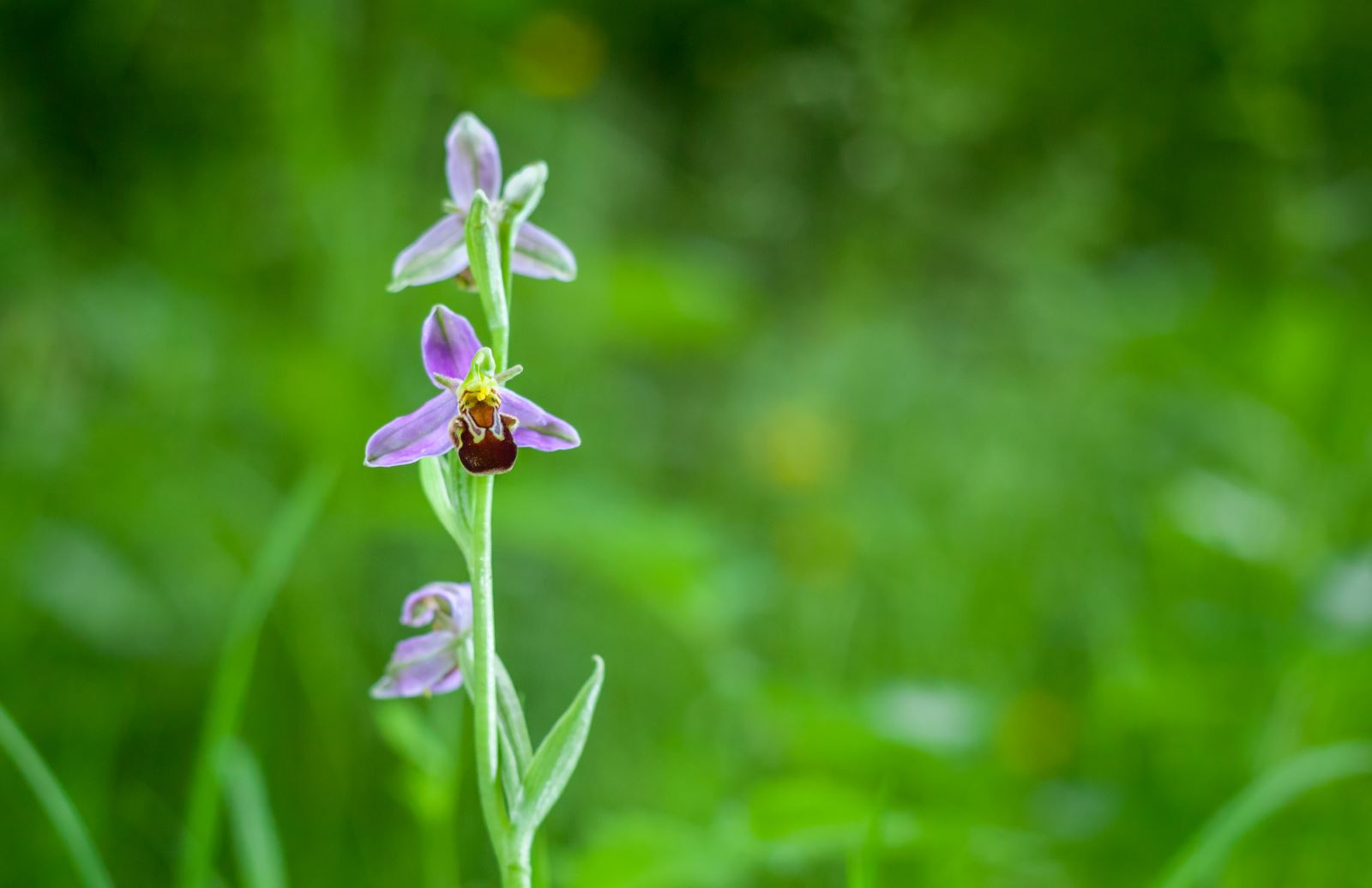
Cross Hill Quarry nature reserve has seen an area of its precious wildflower meadow dug up to create jumps for mountain bikes.
Sitting just outside of Clitheroe, Cross Hill Quarry is an amazing example of how nature can reclaim our industrial past. This former quarry site is now a haven for wildlife and enjoyed by numerous visitors who can take time out and engage with nature in this important green space.
However, an area of the quarry floor, rich with wildflowers including bee orchids and common spotted orchids, has been dug up to create mountain bike jumps, seriously damaging this important habitat.
Kim Coverdale, East Lancashire Reserves Officer at The Wildlife Trust for Lancashire, Manchester and North Merseyside, said: “The quarry floor at Cross Hill Quarry is one of the most important areas on the site for wildflowers, in fact just next to the damaged area an orchid was in flower, and countless other important species associated with these limestone grasslands may have been lost. We very much want people to be able to visit and enjoy the nature reserve, but to do so responsibly. The Wildlife Trust and our amazing volunteers work really hard to look after this wonderful place, so to see this damage is really disappointing.”
The nature reserve at Cross Hill Quarry includes areas of both woodland and meadow, filled with special species that flourish on the limestone bedrock, which was once so prized by our industrial forefathers. The wildflower meadows are filled with crosswort, quaking grass, lady’s bedstraw and of course orchids such as common twayblade, bee and marsh orchids and common spotted orchids. These in turn support numerous wonderful pollinators such as hoverflies and bees. Cross Hill Quarry is well-known for its rich insect population.
The diverse habitats support birds such as nuthatches, blackcaps, willow warblers, blue tits and great tits. Kestrels are often seen hovering over the open areas. As night falls Daubenton’s bats skim insects from the surface of the nearby River Ribble, and pipistrelle and noctule bats hunt along the reserve’s woodland edge and out in the open areas of the reserve.
Kim continues, “Whilst making a few small jumps may seem harmless it can actually have a really significant effect on species right across the nature reserve, on top of damaging this precious wildflower meadow. Nationally, we have seen a 97 per cent decrease in our wildflower meadows since the 1930’s so it really is important that we treasure and protect these beautiful habitats and protect the diversity
“Under the Wildlife and Countryside Act 1981, it is unlawful to uproot any wild plant without permission from the landowner or occupier, and whilst we have no desire to go to such lengths, we just appeal to people to love and care for our nature reserves.”
More information about Cross Hill Quarry and how to visit can be found at www.lancswt.org.uk/nature-reserves/cross-hill-quarry-local-nature-reserve
Related
Comments
Comments are disabled for this post.
 to add an item to your Itinerary basket.
to add an item to your Itinerary basket.









